#food security Kenya
Explore tagged Tumblr posts
Text
How the USAID Shutdown Threatens Kenya’s Agriculture Ahead of the Planting Season
The imminent shutdown of the United States Agency for International Development (USAID) this Friday threatens to derail Kenya’s agricultural sector just weeks before the crucial planting season, potentially affecting millions of farmers across the country who depend on various American-funded programmes. The shutdown, which will place all USAID direct hire personnel on administrative leave…
#agricultural development Kenya#climate resilience Kenya agriculture#county agriculture support Kenya#dairy farming impact USAID shutdown#food security Kenya#food systems Kenya#impact of USAID shutdown#Kenya agribusiness crisis#Kenya agriculture crisis#Kenya agriculture funding#Kenya agriculture transformation#Kenya Crops and Dairy Market System#Kenya economic impact USAID#Kenya farming challenges#Kenya irrigation projects USAID#Kenya maize farming USAID#Kenya planting season 2025#Kenyan farmers affected by USAID#Strengthening Agricultural Water Innovations Kenya#USAID agricultural programs#USAID agriculture projects halted#USAID dairy and maize projects#USAID Feed the Future Kenya#USAID food aid Kenya#USAID funding freeze#USAID rural development Kenya#USAID shutdown Kenya#USAID smallholder farmers#USAID soil fertility programs#USAID-supported projects Kenya
0 notes
Text
Almost two dozen countries at high risk of acute hunger, UN report reveals
Don't forget about charities and NGOs you can donate to and/or share!
https://muslimrelief.org.uk/
#palestine#gaza#sudan#south sudan#mali#haiti#risk of acute hunger#acute food insecurity#food insecurity#donate if possible#please donate#donate if you can#donate#donate and share#please consider reblogging#consider sharing#food aid#food security#food#sudan hunger#gaza hunger#sudan famine#famine#starvation#world central kitchen#yemen#kenya#food crisis#help needed#please consider sharing
24 notes
·
View notes
Link
1 note
·
View note
Text
Here's the top 2 stories from each of Fix The News's six categories:
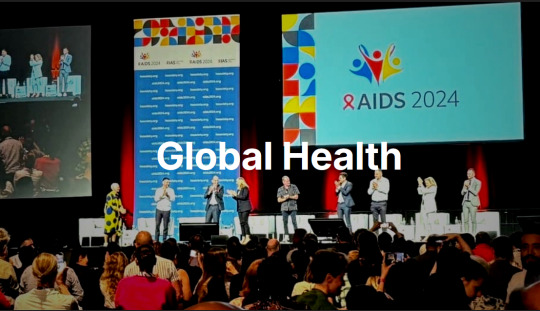
1. A game-changing HIV drug was the biggest story of 2024
In what Science called the 'breakthrough of the year', researchers revealed in June that a twice-yearly drug called lenacapavir reduced HIV infections in a trial in Africa to zero—an astonishing 100% efficacy, and the closest thing to a vaccine in four decades of research. Things moved quick; by October, the maker of the drug, Gilead, had agreed to produce an affordable version for 120 resource-limited countries, and by December trials were underway for a version that could prevent infection with just a single shot per year. 'I got cold shivers. After all our years of sadness, particularly over vaccines, this truly is surreal.'
2. Another incredible year for disease elimination
Jordan became the first country to eliminate leprosy, Chad eliminated sleeping sickness, Guinea eliminated maternal and neonatal tetanus, Belize, Jamaica, and Saint Vincent & the Grenadines eliminated mother-to-child transmission of HIV and syphilis, India achieved the WHO target for eliminating black fever, India, Viet Nam and Pakistan eliminated trachoma, the world’s leading infectious cause of blindness, and Brazil and Timor Leste eliminated elephantiasis.
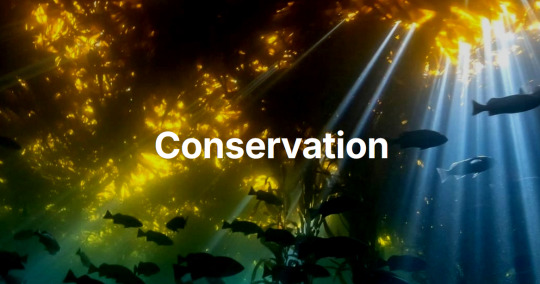
15. The EU passed a landmark nature restoration law
When countries pass environmental legislation, it’s big news; when an entire continent mandates the protection of nature, it signals a profound shift. Under the new law, which passed on a knife-edge vote in June 2024, all 27 member states are legally required to restore at least 20% of land and sea by 2030, and degraded ecosystems by 2050. This is one of the world’s most ambitious pieces of legislation and it didn’t come easy; but the payoff will be huge - from tackling biodiversity loss and climate change to enhancing food security.
16. Deforestation in the Amazon halved in two years
Brazil’s space agency, INPE, confirmed a second consecutive year of declining deforestation in the Brazilian Amazon. That means deforestation rates have roughly halved under Lula, and are now approaching all time lows. In Colombia, deforestation dropped by 36%, hitting a 23-year low. Bolivia created four new protected areas, a huge new new state park was created in Pará to protect some of the oldest and tallest tree species in the tropical Americas and a new study revealed that more of the Amazon is protected than we originally thought, with 62.4% of the rainforest now under some form of conservation management.
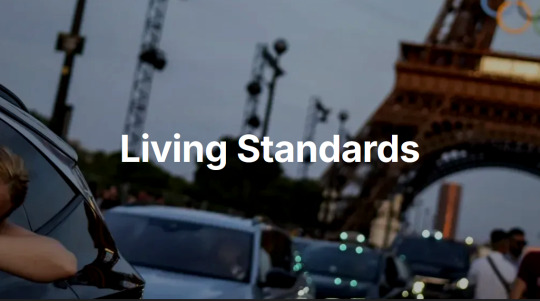
39. Millions more children got an education
Staggering statistics incoming: between 2000 and 2023, the number of children and adolescents not attending school fell by nearly 40%, and Eastern and Southern Africa, achieved gender parity in primary education, with 25 million more girls are enrolled in primary school today than in the early 2000s. Since 2015, an additional 110 million children have entered school worldwide, and 40 million more young people are completing secondary school.
40. We fed around a quarter of the world's kids at school
Around 480 million students are now getting fed at school, up from 319 million before the pandemic, and 104 countries have joined a global coalition to promote school meals, School feeding policies are now in place in 48 countries in Africa, and this year Nigeria announced plans to expand school meals to 20 million children by 2025, Kenya committed to expanding its program from two million to ten million children by the end of the decade, and Indonesia pledged to provide lunches to all 78 million of its students, in what will be the world's largest free school meals program.
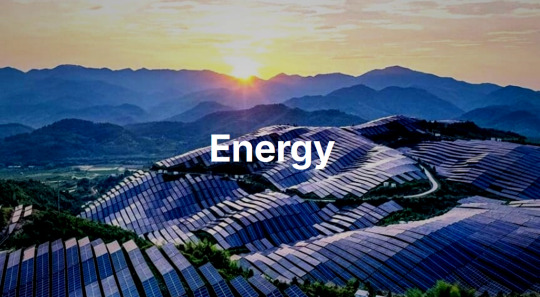
50. Solar installations shattered all records
Global solar installations look set to reach an unprecedented 660GW in 2024, up 50% from 2023's previous record. The pace of deployment has become almost unfathomable - in 2010, it took a month to install a gigawatt, by 2016, a week, and in 2024, just 12 hours. Solar has become not just the cheapest form of new electricity in history, but the fastest-growing energy technology ever deployed, and the International Energy Agency said that the pace of deployment is now ahead of the trajectory required for net zero by 2050.
51. Battery storage transformed the economics of renewables
Global battery storage capacity surged 76% in 2024, making investments in solar and wind energy much more attractive, and vice-versa. As with solar, the pace of change stunned even the most cynical observers. Price wars between the big Chinese manufacturers pushed battery costs to record lows, and global battery manufacturing capacity increased by 42%, setting the stage for future growth in both grid storage and electric vehicles - crucial for the clean flexibility required by a renewables-dominated electricity system. The world's first large-scale grid battery installation only went online seven years ago; by next year, global battery storage capacity will exceed that of pumped hydro.
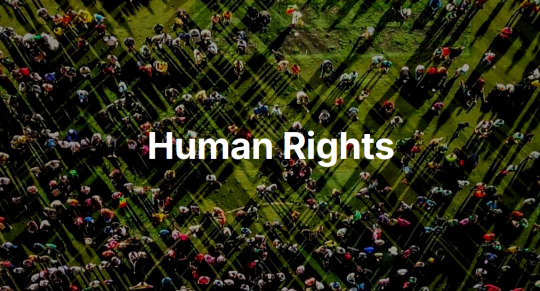
65. Democracy proved remarkably resilient in a record year of elections
More than two billion people went to the polls this year, and democracy fared far better than most people expected, with solid voter turnout, limited election manipulation, and evidence of incumbent governments being tamed. It wasn't all good news, but Indonesia saw the world's biggest one day election, Indian voters rejected authoritarianism, South Korea's democratic institutions did the same, Bangladesh promised free and fair elections following a 'people's victory', Senegal, Sri Lanka and Botswana saw peaceful transfers of power to new leaders after decades of single party rule, and Syria saw the end of one of the world's most horrific authoritarian regimes.
66. Global leaders committed to ending violence against children
In early November, while the eyes of the world were on the US election, an event took place that may prove to be a far more consequential for humanity. Five countries pledged to end corporal punishment in all settings, two more pledged to end it in schools, and another 12, including Bangladesh and Nigeria, accepted recommendations earlier in the year to end corporal punishment of children in all settings. In total, in 2024 more than 100 countries made some kind of commitment to ending violence against children. Together, these countries are home to hundreds of millions of children, with the WHO calling the move a 'fundamental shift.'

73. Space exploration hit new milestones
NASA’s Europa Clipper began a 2.9 billion kilometre voyage to Jupiter to investigate a moon that may have conditions for life; astronomers identified an ice world with a possible atmosphere in the habitable zone; and the James Webb Telescope found the farthest known galaxy. Closer to Earth, China landed on the far side of the moon, the Polaris Dawn crew made a historic trip to orbit, and Starship moved closer to operational use – and maybe one day, to travel to Mars.
74. Next-generation materials advanced
A mind-boggling year for material science. Artificial intelligence helped identify a solid-state electrolyte that could slash lithium use in batteries by 70%, and an Apple supplier announced a battery material that can deliver around 100 times better energy density. Researchers created an insulating synthetic sapphire material 1.25 nanometers thick, plus the world’s thinnest lens, just three atoms across. The world’s first functioning graphene-based semiconductor was unveiled (the long-awaited ‘wonder material’ may finally be coming of age!) and a team at Berkeley invented a fluffy yellow powder that could be a game changer for removing carbon from the atmosphere.
-via Fix The News, December 19, 2024
#renumbered this to reflect the article numbering#and highlight just how many stories of hope there are#and how many successes each labeled story contains#2024#good news#hope#hope posting#hopeposting#hopepunk#conservation#sustainability#public health#energy#quality of life#human rights#science and technology
3K notes
·
View notes
Text
Kenya: Mudavadi Urges Universities to Innovate in Agriculture to Boost Food Security
Nairobi — Universities have been urged to embrace agricultural innovations and research, to create solutions that will ease the cost of living. Prime Cabinet Secretary, Musalia Mudavadi has said the agricultural sector is the backbone of the economy, contributing approximately 33 per cent of the country’s Gross Domestic Product (GDP). Similarly, the sector employs over 40 per cent of the total…

View On WordPress
0 notes
Text
Things Biden and the Democrats did, this week #14
April 12-19 2024
The Department of Commerce announced a deal with Samsung to help bring advanced semiconductor manufacturing and research and development to Texas. The deal will bring 45 billion dollars of investment to Texas to help build a research center in Taylor Texas and expand Samsung's Austin, Texas, semiconductor facility. The Biden Administration estimates this will create 21,000 new jobs. Since 1990 America has fallen from making nearly 40% of the world's semiconductor to just over 10% in 2020.
The Department of Energy announced it granted New York State $158 million to help support people making their homes more energy efficient. This is the first payment out of a $8.8 billion dollar program with 11 other states having already applied. The program will rebate Americans for improvements on their homes to lower energy usage. Americans could get as much as $8,000 off for installing a heat pump, as well as for improvements in insulation, wiring, and electrical panel. The program is expected to help save Americans $1 billion in electoral costs, and help create 50,000 new jobs.
The Department of Education began the formal process to make President Biden's new Student Loan Debt relief plan a reality. The Department published the first set of draft rules for the program. The rules will face 30 days of public comment before a second draft can be released. The Administration hopes the process can be finished by the Fall to bring debt relief to 30 million Americans, and totally eliminate the debt of 4 million former students. The Administration has already wiped out the debt of 4.3 million borrowers so far.
The Department of Agriculture announced a $1 billion dollar collaboration with USAID to buy American grown foods combat global hunger. Most of the money will go to traditional shelf stable goods distributed by USAID, like wheat, rice, sorghum, lentils, chickpeas, dry peas, vegetable oil, cornmeal, navy beans, pinto beans and kidney beans, while $50 million will go to a pilot program to see if USAID can expand what it normally gives to new products. The food aid will help feed people in Bangladesh, Burkina Faso, Burundi, Chad, Democratic Republic of the Congo, Djibouti, Ethiopia, Haiti, Kenya, Madagascar, Mali, Nigeria, Rwanda, South Sudan, Sudan, Tanzania, Uganda, and Yemen.
The Department of the Interior announced it's expanding four national wildlife refuges to protect 1.13 million wildlife habitat. The refuges are in New Mexico, North Carolina, and two in Texas. The Department also signed an order protecting parts of the Placitas area. The land is considered sacred by the Pueblos peoples of the area who have long lobbied for his protection. Security Deb Haaland the first Native American to serve as Interior Secretary and a Pueblo herself signed the order in her native New Mexico.
The Department of Labor announced new work place safety regulations about the safe amount of silica dust mine workers can be exposed to. The dust is known to cause scaring in the lungs often called black lung. It's estimated that the new regulations will save over 1,000 lives a year. The United Mine Workers have long fought for these changes and applauded the Biden Administration's actions.
The Biden Administration announced its progress in closing the racial wealth gap in America. Under President Biden the level of Black Unemployment is the lowest its ever been since it started being tracked in the 1970s, and the gap between white and black unemployment is the smallest its ever been as well. Black wealth is up 60% over where it was in 2019. The share of black owned businesses doubled between 2019 and 2022. New black businesses are being created at the fastest rate in 30 years. The Administration in 2021 Interagency Task Force to combat unfair house appraisals. Black homeowners regularly have their homes undervalued compared to whites who own comparable property. Since the Taskforce started the likelihood of such a gap has dropped by 40% and even disappeared in some states. 2023 represented a record breaking $76.2 billion in federal contracts going to small business owned by members of minority communities. This was 12% of federal contracts and the President aims to make it 15% for 2025.
The EPA announced (just now as I write this) that it plans to add PFAS, known as forever chemicals, to the Superfund law. This would require manufacturers to pay to clean up two PFAS, perfluorooctanoic acid and perfluorooctanesulfonic acid. This move to force manufacturers to cover the costs of PFAS clean up comes after last week's new rule on drinking water which will remove PFAS from the nation's drinking water.
Bonus:
President Biden met a Senior named Bob in Pennsylvania who is personally benefiting from The President's capping the price of insulin for Seniors at $35, and Biden let Bob know about a cap on prosecution drug payments for seniors that will cut Bob's drug bills by more than half.
#Thanks Biden#Joe Biden#jobs#Economy#student loan debt#Environment#PFAS#politics#US politics#health care
764 notes
·
View notes
Text


October 16th marks World Food Day.
It is not the first time Russia has weaponized food as a means of control and aggression (ex: Holodomor). In Ukraine's fight against Russia's war, it has become an unprecedented guarantee of food security for the world through the "Grain from Ukraine" program. This grain is distributed by the UN's World Food Program to recipient countries suffering food shortages. This is all while Russia shells grain terminals, blockades Ukrainian ships, and wages its aggression towards farmers in its war. Remember, much of the agricultural land is contaminated with mines and other unexploded ordnance.
In order to maintain food security, the Ministry of Foreign Affairs of Ukraine has listed what it will take.
Full and safe navigation in the Black and Azov seas.
Restoration of Ukraine's sovereign control over its ports.
Establishment of new ports
Expansion of the assortment of Ukrainian goods transported by seas.
Security guarantees are not just important for Ukraine, but for the entire world. Already Ukraine has delivered 228,960 tons of agricultural products to:
Somalia
Ethiopia
Kenya
Yemen
Mauritania
Nigeria
Sudan
Djibouti
Mozambique
the Democratic Republic of Congo
Palestine
Supporting Ukraine means supporting the world. History has already seen Russia weaponize food. Russia's war shows it is doing so again right now. If we fail to support Ukraine, don't be surprised if Russia chooses to manipulate countries that need Ukrainian grain.
#Ukraine#world food day#russia is a terrorist state#holodomor#unexploded ordnance#UXO#food security#grain from ukraine#world food program#UN#united nations
114 notes
·
View notes
Text
My names are Peter from
uganda, asylum-seekers living in Gorom Refugee Camp in Sudan but also once ever been in kakuma refugee camp in kenya but due to increased insecurities and also most was going to loose life hence my second flee to sudan.
In the East African community, Sudan's North that's where we find Gorom refugee camp with a population of almost 200,000 people, and it's with in that camp that we the queer people are living.
A refugee has the right to safe asylum and freedom of thought, of movement, and freedom from torture and degrading treatment according to united Nation.
And according to the universal declaration of human rights article 5, “No one shall be subjected to torture or to cruel, inhuman or degrading treatment or punishment.” We the LGBTQIA+ refugees in Sudan have for long been living out of the scope of these fundamental human rights.
On the donations that are made,by well wishers they' provide us with a food so that we don't sleep on empty stomachs. This is because we receive roughly 2 kilograms of sorghum to take each person for a month from World Food Programme.
When we go to camp hospitals, we are not treated. We are discriminated and have to end up going to private hospitals to get proper treatment as per their sexualities. The donations always support us to ensue that we get this.
Hence we have decided to speak in unison to address these and a number of other issues that have either been overlooked or misrepresented by NGO's giving a false picture of security and safety here in Gorom refugee camp. In so doing, we have been denied a safe environment resulting in avoidable injuries, loss of personal property and life. This false picture has been painted with the help of external organizations which have come bearing a tag of human rights defenders when indeed their interest has either been monitory or have simply been used to promote the absurd notion that a few material things can make death and injuries resulting from homophobia and transphobia bearable. Based on that notion promoted by these organizations, some of who have appeared alongside UNCHR while speaking to the press, they have created the narrative that, it’s is the fault of the LGBTQIA+ refugees because we are not able to hide who we are. This narrative also has implied that the LGBTQIA+ refugees are simply looking for resettlement in the fourth country. According to the UNHCR and its agents, it’s very unreasonable for the persecuted and dying refugees in Gorom refugee camp to want a safe environment outside of Sudan and kenya and that the horrors that we face on a daily basis are ok. This is a homophobic and transphobic attack on us by the very institution that purports to protect us from the same.
Therefore, we strongly refute the allegations that we are not peaceful people and that the attacks we have suffered have been provoked. We also strongly refute the claim that African refugee camps and other places are not homophobic and transphobic. We continue to struggle to understand why we find ourselves in the same homophobic camp where UNHCR and the African government had to evacuate the LGBTQIA+ refugees as recently as 2019 to protect them from homophobic attacks. We have been given a shocking impression that upholding the African encampment policy is more important than saving lives even though this policy can and has been waived in the recent past.
We are disappointed by the casual approach and the laxity which the UNHCR and its partners continue to display in the way they have responded to the attacks on LGBTQIA+ refugees in Gorom and kakuma refugee camps which have claimed lives and left many with grave physical and psychological injuries. We read with a lot of shock their inaccurate statements claiming that African camps are now hospitable to the LGBTQIA+ and that the majority of us are living in relative safety. We can confirm that this is not true and that as a whole the LGBTQIA+ group in Gorom, we continue to face attacks irrespective of which part of sudan we live in. Children, women and others in the LGBTQIA+ community continue to face unprovoked attacks, harassment and heavy discrimination based on sexual orientation and gender identity. UNHCR’s attempt to make it look like the problem lies within the queer community itself constitutes an attack on our vulnerable community and is out of line with their primary duty to recognize and protect those that are most vulnerable. This is highly regrettable and a strong deviation from their mandate.
We have turned to activists to get basics such as medical care and food, things which should be UNHCR’S obligations. Their attempts to undermine these humanitarian efforts shows that they are not bothered about our wellbeing. As the entire LGBTQIA+ family living in hostile and homophobic African refugee camps, we reiterate asking for your advocacy and support.
lgbtiq-refugees-blogs
Please 🙏🏿 consider my humble request for support.
Your's sincerely Peter from south Sudan refugee camp.
This is our fundraiser link, please read more here and donate for our survival.
https://www.gofundme.com/f/stand-with-queer-refugees-in-africa-peters-story?utm_medium=customer&utm_source=whatsapp&utm_campaign=fp_sharesheet&lang=en_US

101 notes
·
View notes
Text

Finding Strength in Exile: My Journey of Survival and Hope
I never thought I would have to leave the home I loved, the streets where I played as a child, or the family I thought would stand by me. But when the truth about my identity came to light, my world fell apart. The community I had grown up in turned against me, and even my own family rejected me because of my sexuality.
With my life in danger, I fled my home country, hoping to find safety and acceptance in Kenya. But instead of refuge, I found even more hardship.
Kenya was meant to be a fresh start, a place where I could rebuild. But it quickly became another battleground. I faced attacks and hostility from my fellow refugees, people who, like me, were seeking safety but instead turned their pain and anger on me.

I had to leave again, forced to seek safety in another country. Although I escaped the violence, the struggles didn’t end. I am now faced with daily challenges to secure even the most basic necessities—food, clean water, and medication.
A Call for Kindness and Support
Through all of this, I have clung to hope. I believe in the strength of the queer community—a family bound not by blood but by shared experiences, courage, and resilience. I know we have the power to lift each other up in times of need.
I am asking for help from my queer brothers and sisters, allies, and anyone who believes in the dignity and worth of every human being. Your support can help me survive these difficult days. Whether it’s a donation or simply sharing my story, every little act of kindness matters.
How You Can Help
If you’re able to contribute, please consider donating . Your support will go toward helping me access food, clean drinking water, and necessary medication. If you cannot donate, sharing this post with others who might be able to help is equally valuable.
My journey has been one of hardship, but it has also been one of resilience. I refuse to let the rejection I’ve faced define me. Instead, I hold on to the belief that kindness and compassion can change lives—even in the darkest times.
To anyone reading this who is also struggling: know that you are not alone. Together, we are stronger. Thank you for being a part of my journey.
#transgender#representation#u.s. house of representatives#trans character#asexuality#pronouns#terms of use#trans body positivity#bury your gays#coming out#t4t misgendering#blinding#non binary character#bisexuality#the gender is gendering#gender nonconforming#hormones#intersex#gender expression#aromanticism#trans representation#testosterone#binarism#medical transition#queer baiting#own voices#trans history#trans his gender#trans names#gender dysphoria
47 notes
·
View notes
Text



HELP LGBTIQ IN KAKUMA - 10,000€
Dear friends and allies,
I am one of the 50 individuals among the LGBTIQ community living in the Kakuma refugee camp located in Turkana west county, Kenya. Unfortunately, this camp is a hostile community for us, with regular attacks, continues discrimination increased homophobia,serious death tolls, precious living conditions and restricted access to NGOs, injuries inflicted upon us. Therefore we're plea for support cannot be ignored. As we lgbtiq individuals we're calling upon for individuals and organisatios to support us in this critical situation , we're seeking for your support, assistance, guidance and collaboration in addressing this urgent matter so that we can survive and thrive in this situation.
We are raising 10,000€ for 50 individuals and further if the donations increases to facilitate the costs of food, medication, and other survival necessities like pads , clothes soaps so that we can atleast reduce the risks of lesbians who always selling off their bodies to get access for food and sanitary items for survival hence can lead them to sexually transmitted diseases like HIV, TB. Every pound you donate will make a real significant impact on innocent lives, helping us to survive and stay healthy in this horrible and difficult environment.
We also ask for your support in advocating for us, so that we can be resettled in a safe place where we can live without fear of persecution as Kenya is on way to introduce severe anti LGBTQIA laws on his territory. Any assistance in this regard would be greatly appreciated. Your voice can make a real difference in securing a better future for us.thank you for your time , consideration and dedication to the principal of justice and equality
Please consider making a donation to help us survive and thrive in Kakuma. Any amount, no matter how small, will make a real world of difference in our lives. Thank you for your support and compassion.
Sincerely,
The LGBTIQ community in Kakuma.
https://gofund.me/f2182303
#mutual aid#lesbian#queer community#trans pride#arospec#aroace#refugee aid#lgbt pride#transgender#lgbtq community#queer aid#lgbtqia#nonbinary#bisexual#pansexual#gay#pride#pride month#gay pride#trans aid#queer#intersex#asexuel#aromantic#ace#allosexuality#aro#asexuality#trans#bisexuality
25 notes
·
View notes
Text
Food, energy and water insecurity are ongoing concerns in East Africa, agrivoltaic systems address all three

This paper shows data for agrivoltaic systems in Tanzania and Kenya that generate power, produce food and conserve water, demonstrating their viability for both grid-tied agribusinesses and rural, off-grid projects.
The research indicates that certain crops such as maize, Swiss chard and beans thrived in the partial shade offered by solar panels.
“The positive yield results for Swiss chard have promising implications for growing nutritious crops with agrivoltaics. The control plot was sufficiently irrigated, with yields comparable to those in a rainfed study in South Africa, so drought stress does not explain the lower yields compared to the agrivoltaic plot.
“Instead, the partial panel cover is potentially creating a more suitable growing environment by protecting the crops from heat stress and/or UV damage,” the report said.
It notes that some crops produced more food using less water, “valuable in a region where water scarcity threatens food security, most farmers rely on rainfall for their crops, and climate change is likely to make rainfall less predictable.”
#solarpunk#solar punk#indigenous knowledge#community#africa#jua kali solarpunk#informal economy#agrivoltaics#solar power#agriculture
19 notes
·
View notes
Text
Collaborative Efforts to Enhance Dairy Farming, Food Security and Livelihoods in Marsabit County
The Jomo Kenyatta University of Agriculture and Technology (JKUAT), in collaboration with the University of Nairobi, the University of Copenhagen, the Kenya Agricultural and Livestock Research Organization (KALRO) and the Karare Women Dairy Cooperative, have launched a project to boost the dairy industry in Marsabit County. The multimillion-shilling initiative, titled ADAPTiVE, which has been…
#agricultural research Kenya#ASAL regions Kenya#climate change adaptation#cold-chain milk storage#dairy farming in kenya#DANIDA-funded projects#food security Kenya#JKUAT dairy project#Karare Women Dairy Cooperative#Marsabit County dairy sector#smart farming Kenya#sustainable agriculture#sustainable livelihoods#Vision 2030 Kenya#women empowerment agriculture
0 notes
Text
https://www.amirkhanfoundation.com/
Almost two dozen countries at high risk of acute hunger, UN report reveals
Don't forget about charities and NGOs you can donate to and/or share!
https://muslimrelief.org.uk/
#palestine#risk of acute hunger#gaza#acute food insecurity#donate if possible#south sudan#mali#sudan#please donate#haiti#donate if you can#food insecurity#donate#please consider reblogging#donate and share#consider sharing#food security#food aid#sudan famine#sudan hunger#gaza hunger#food#world central kitchen#food crisis#kenya#please consider sharing#starvation#yemen#famine#pakistan
24 notes
·
View notes
Text
Hey Guys! Another important post!
This is @lawrence86sblog, they and other 480 people that are refugees from a Kauma camp in Kenya, to Gorom camp of South Sudan, need supplies, help and support!! Here is what @lawrence86sblog sended to me
______________________________________________________________
MY COURAGEOUS JOURNEY AS A QUEER REFUGEE FROM KAUMA CAMP IN KENYA TO GOROM CAMP OF SOUTH SUDAN.
"Hello world,
I want to share with you a journey of courage, resilience, and hope. My name Lawrence and I am one of the many queer refugees who fled Kenya's brutality in search of safety and acceptance in Sudan.
Leaving behind everything I knew was not an easy decision. In kakuma camp of Kenya, LGBTQ+ individuals like myself faced discrimination, violence, and legal persecution on a daily basis. The fear of being targeted simply for being who I am became too much to bear. So, I made the brave choice to seek refuge elsewhere.
Now, here I am in Gorom, a place of both sanctuary and uncertainty. The road to rebuilding my life is fraught with challenges. From securing shelter to accessing healthcare and food, every day brings new obstacles to overcome.
But I refuse to be silenced. I refuse to let the struggles I've faced define me. My voice matters, and I will not rest until it is heard. I call upon the world to stand in solidarity with queer refugees like myself, to tackle our top priority challenges like food security to inadequate shelter facilities.
We are not asking for special treatment. We are simply asking for the right to live freely and without fear of persecution. Together, we can create a world where everyone is valued, respected, and able to live authentically.
Thank you for listening.
Lawrence kizito
______________________________________________________________
Here is a post of my friend, Steren, that explains better about their situation!
The members of this camp, includes people of all sexualities and genders, that need basic things to live (Like shelter and food)!
PLEASE SHOW THEM SOME SUPPORT!!
AND IF YOU CAN, PLEASE RAISE A FUNDRAISER FOR THEM (WITH THEIR PERMISSION OF COURSE)
#― the angel catalogue !#― sky !#― abbey !#― important !#non binary#lgbtq community#lgbtqia#lgbtq#lgbtqiia+#transfem#transgender#trans woman#transmasc#gay#lesbian#bisexual#queer#nonbinary#trans#asexual#aromantic#aroace#aspec#asexuality#acespec#aro#lgbt#pansexual#fundraiser#important
25 notes
·
View notes
Text
Excerpt from this story from Inside Climate News:
Most people are “very” or “extremely” concerned about the state of the natural world, a new global public opinion survey shows.
Roughly 70 percent of 22,000 people polled online earlier this year agreed that human activities were pushing the Earth past “tipping points,” thresholds beyond which nature cannot recover, like loss of the Amazon rainforest or collapse of the Atlantic Ocean’s currents. The same number of respondents said the world needs to reduce carbon emissions within the next decade.
Just under 40 percent of respondents said technological advances can solve environmental challenges.
The Global Commons survey, conducted for two collectives of “economic thinkers” and scientists known as Earth4All and the Global Commons Alliance, polled people across 22 countries, including low-, middle- and high-income nations. The survey’s stated aim was to assess public opinion about “societal transformations” and “planetary stewardship.”
The results, released Thursday, highlight that people living under diverse circumstances seem to share worries about the health of ecosystems and the environmental problems future generations will inherit.
But there were some regional differences. People living in emerging economies, including Kenya and India, perceived themselves to be more exposed to environmental and climate shocks, like drought, flooding and extreme weather. That group expressed higher levels of concern about the environment, though 59 percent of all respondents said they are “very” or “extremely” worried about “the state of nature today,” and another 29 percent are at least somewhat concerned.
Americans are included in the global majority, but a more complex picture emerged in the details of the survey, conducted by Ipsos.
Roughly one in two Americans said they are not very or not at all exposed to environmental and climate change risks. Those perceptions contrast sharply with empirical evidence showing that climate change is having an impact in nearly every corner of the United States. A warming planet has intensified hurricanes battering coasts, droughts striking middle American farms and wildfires threatening homes and air quality across the country. And climate shocks are driving up prices of some food, like chocolate and olive oil, and consumer goods.
Americans also largely believe they do not bear responsibility for global environmental problems. Only about 15 percent of U.S. respondents said that high- and middle-income Americans share responsibility for climate change and natural destruction. Instead, they attribute the most blame to businesses and governments of wealthy countries.
Those survey responses suggest that at least half of Americans may not feel they have any skin in the game when it comes to addressing global environmental problems, according to Geoff Dabelko, a professor at Ohio University and expert in environmental policy and security.
Translating concern about the environment to actual change requires people to believe they have something at stake, Dabelko said. “It’s troubling that Americans aren’t making that connection.”
23 notes
·
View notes